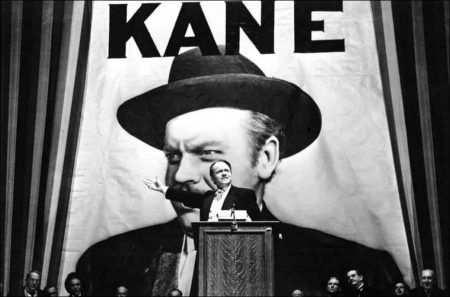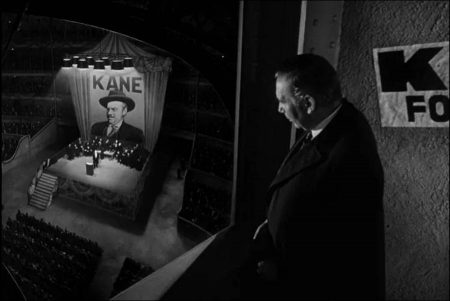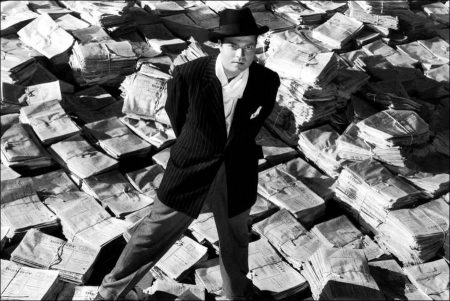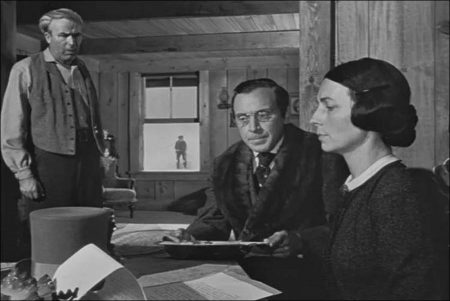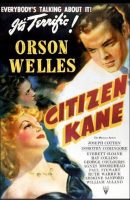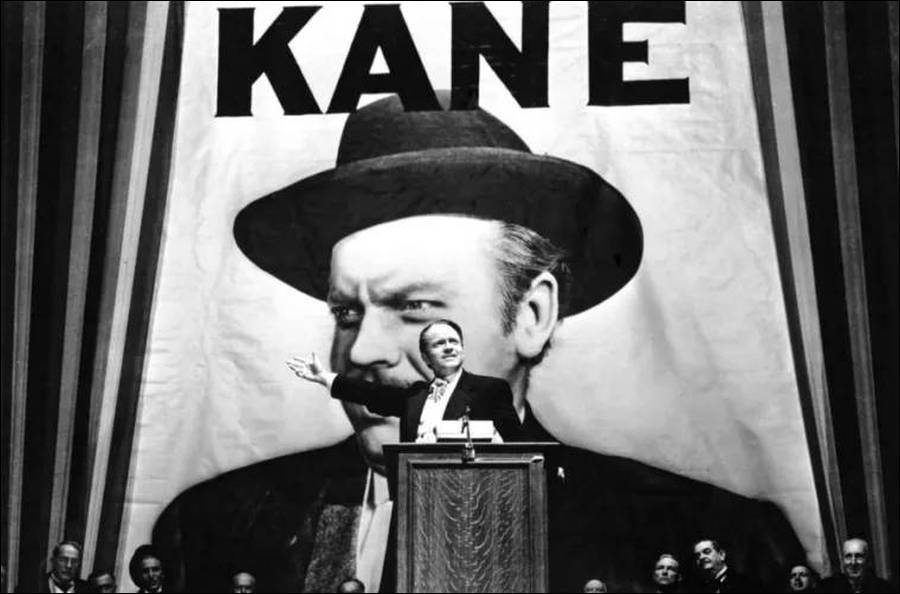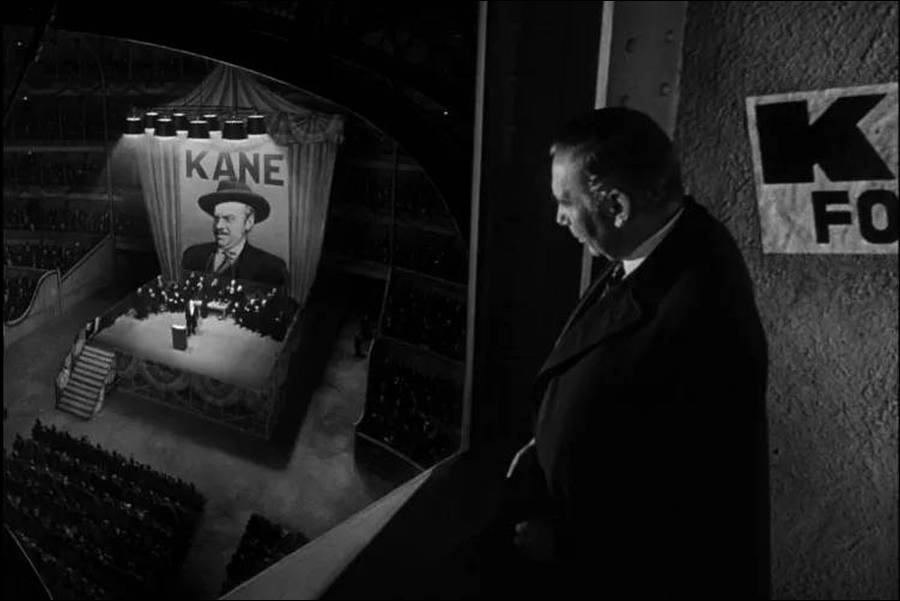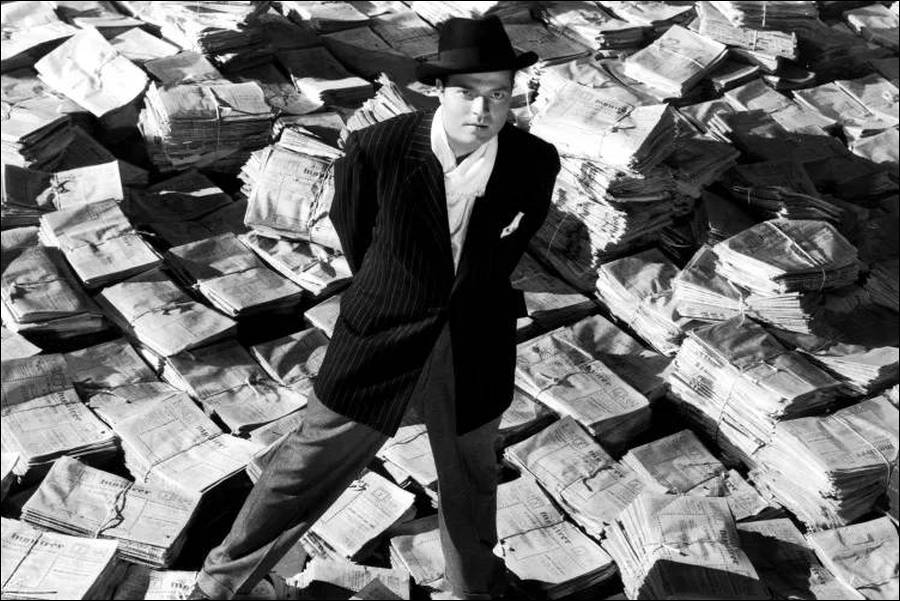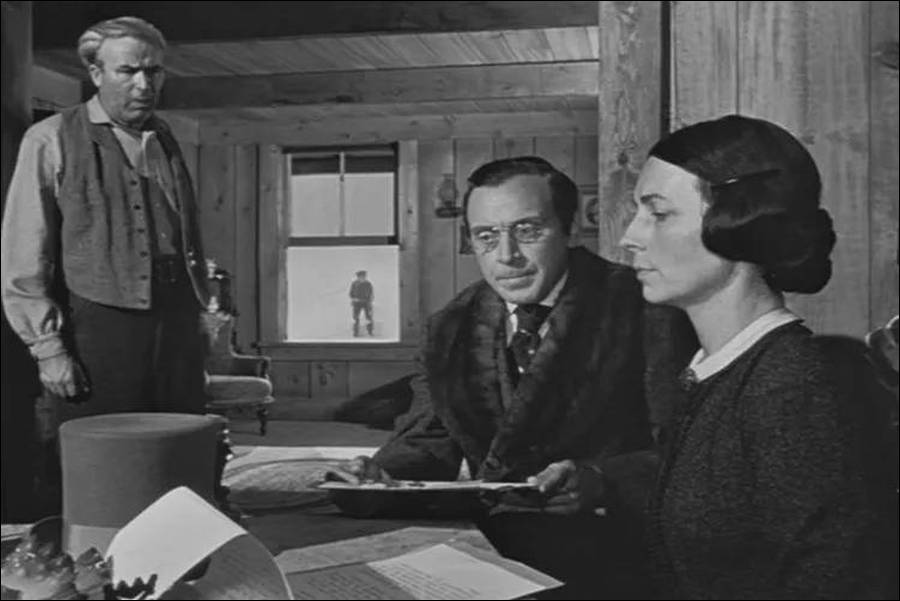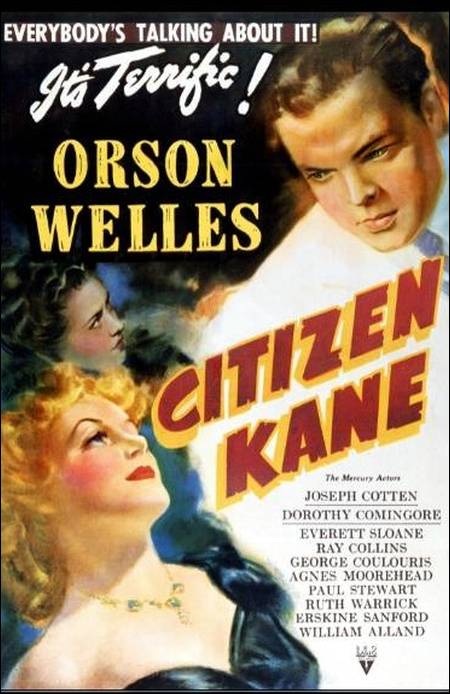The newspaper baron Charles Foster Kane, one of the richest and most powerful men in America if not the world, dies. A newspaperman digs into his past seeking the meaning of his enigmatic last word: “Rosebud.” He finds evidence of a child torn away from his family to serve Mammon.
Grown into manhood, Charles Foster Kane becomes a newspaperman to indulge his idealism. He marries the niece of the man who will become President of the United States, and gradually assumes more and more power while losing more and more of his soul. Kane’s money and power does not bring him happiness, as he has lost his youthful idealism, as has the America he is a symbol for.
Citizen Kane is a 1941 American drama film produced by, directed by, and starring Orson Welles. He also co-wrote the screenplay with Herman J. Mankiewicz. The picture was Welles’ first feature film. Citizen Kane is considered by many critics and experts to be the greatest film ever made.
For 50 consecutive years, it stood at number 1 in the British Film Institute’s Sight & Sound decennial poll of critics, and it topped the American Film Institute’s 100 Years… 100 Movies list in 1998, as well as its 2007 update. The film was nominated for Academy Awards in nine categories and it won for Best Writing (Original Screenplay) by Mankiewicz and Welles. Citizen Kane is praised for Gregg Toland’s cinematography, Robert Wise’s editing, Bernard Herrmann’s music, and its narrative structure, all of which have been considered innovative and precedent-setting.
The quasi-biographical film examines the life and legacy of Charles Foster Kane, played by Welles, a composite character based on American media barons William Randolph Hearst and Joseph Pulitzer, Chicago tycoons Samuel Insull and Harold McCormick, as well as aspects of the screenwriters’ own lives. Upon its release, Hearst prohibited the film from being mentioned in his newspapers.
After the Broadway success of Welles’s Mercury Theatre and the controversial 1938 radio broadcast “The War of the Worlds” on The Mercury Theatre on the Air, Welles was courted by Hollywood. He signed a contract with RKO Pictures in 1939. Although it was unusual for an untried director, he was given freedom to develop his own story, to use his own cast and crew, and to have final cut privilege. Following two abortive attempts to get a project off the ground, he wrote the screenplay for Citizen Kane, collaborating with Herman J. Mankiewicz. Principal photography took place in 1940 and the film was released in 1941.
Although it was a critical success, Citizen Kane failed to recoup its costs at the box office. The film faded from view after its release, but it returned to public attention when it was praised by French critics such as André Bazin and re-released in 1956. And later in 1958, the film was voted number 9 on the prestigious Brussels 12 list at the 1958 World Expo.
The film was made available on Blu-ray on September 13, 2011, as a special 70th-anniversary edition. Citizen Kane was selected by the Library of Congress as an inductee of the 1989 inaugural group of 25 films for preservation in the United States National Film Registry for being “culturally, historically, or aesthetically significant”.
Citizen Kane (1941)
Directed by: Orson Welles
Starring: Orson Welles, Joseph Cotten, Dorothy Comingore, Everett Sloane, Ray Collins, George Coulouris, Agnes Moorehead, Paul Stewart, Ruth Warrick, Erskine Sanford, William Alland
Screenplay by: Herman J. Mankiewicz, Orson Welles
Production Design by: Pandro S. Berman
Cinematography by: Gregg Toland
Film Editing by: Robert Wise
Costume Design by: Edward Stevenson
Set Decoration by: Sydney Moore, Darrell Silvera
Art Direction by: Van Nest Polglase
Music by: Bernard Herrmann
MPAA Rating: None.
Distributed by: RKO Radio Pictures
Release Date: May 1, 1941 (Palace Theatre), September 5, 1941 (United States)
Views: 310
